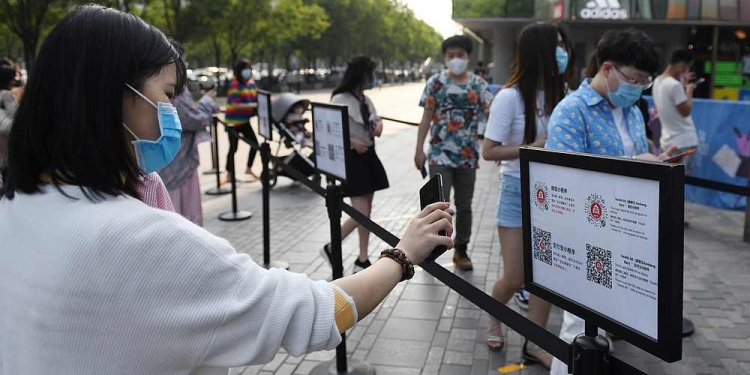China is requiring citizens to use an app on their smartphones showing assigned colour codes indicating their health status. This is to determine whether they are a coronavirus threat, as they encourage people to return to work.
A green light lets you in anywhere. A yellow light could send you into home confinement. A red light sends you into a strict two-week quarantine at a hotel. The colour codes show whether a person should be allowed into subways, malls and other public spaces, or whether they should be quarantined.
The system
Neither the company nor Chinese officials have explained in detail how the system classifies people, but the system is called the Alipay Health Code, which was first introduced in the eastern city of Hangzhou. The “Code” is a project by the local government with the help of Ant Financial, a sister company of the e-commerce giant Alibaba, and is already launching nationwide.
While there is more than one tracking app in China, Alipay works by accessing the user’s personal data, and then a piece of program called “reportInfoAndLocationToPolice” sends the user’s location, city name and an identifying code number to a server.
This method is similar to how South Korea uses technology to track where infected people have been so they can trace their steps, and go get checked for the virus if needed. However, this kind of data sharing that might not be permissible in Western democracies.
As for other applications like WeChat, they don’t use GPS data but rely on alternative information. Beijing has a “Health Kit” programme that displays whether people have taken a train or plane, passed a road checkpoint into the city or have been tested for the virus. Meanwhile, police, health authorities and neighbourhood committees are feeding information into the software. Otherwise, all the apps basically work in the same way in that the programme gives people colour codes.
“For the greater good”
As the Chinese government keeps a close eye on the population and collects personal data, many citizens say they are happy to cooperate for the greater good.
“We are in a special context with this epidemic, so divulging my movements doesn’t bother me. Human life is more important,” said Debora Lu, a 30-year-old Shanghai resident.
“There is a difference between Chinese and Western culture. Most Chinese people are ready to sacrifice a little bit of their private life if it is really for their health,” said Cui Xiaohui, a professor at the University of Wuhan—the city where the virus first emerged.
Besides the apps, a Chinese company has developed facial recognition technology that works even if you’re wearing a mask. In the video above, the technology is seen used before people enter buildings or pass through walkways.
[ SOURCE, 2, 3, IMAGE SOURCE ]








